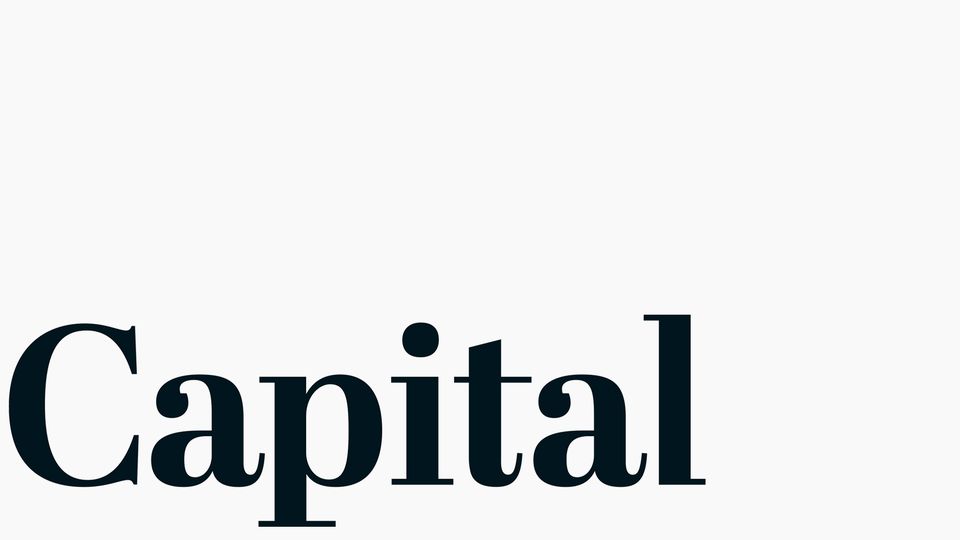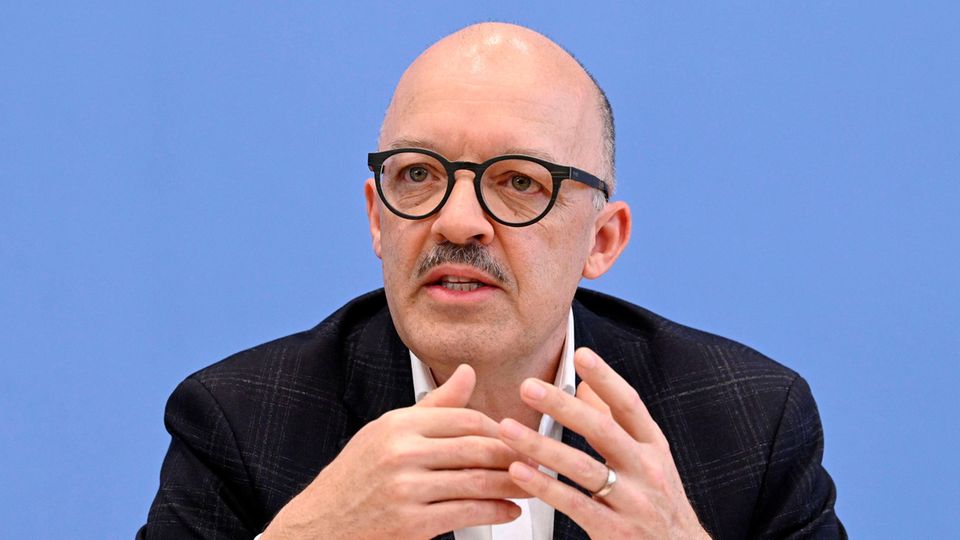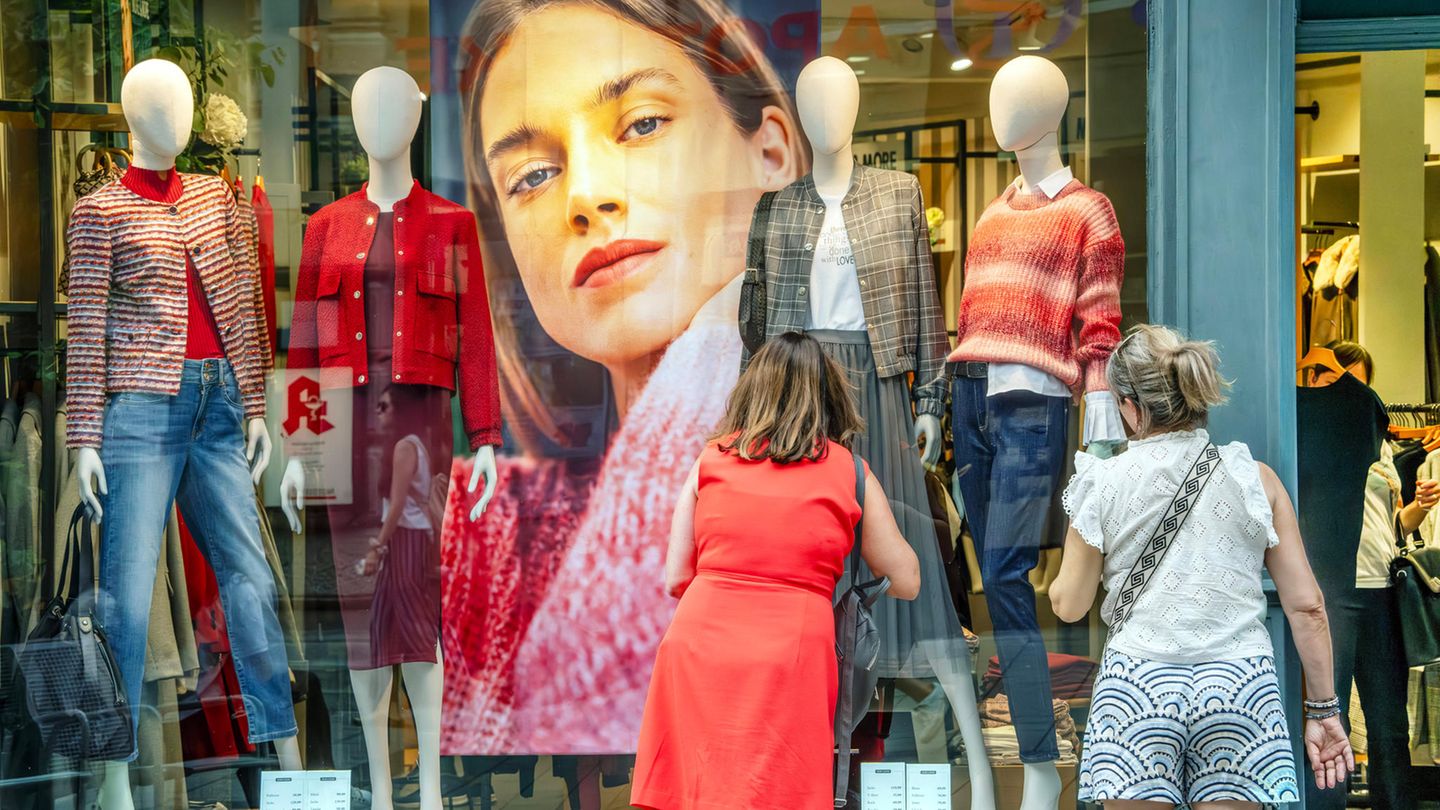interview
In an interview, Ifo economist Timo Wollmershäuser talks about the gloomy outlook for the German economy. People are unsettled, he says.

This is original content from the Capital brand. This article will be available for ten days on stern.de. After that, you will find it exclusively on capital.de. Capital, like the star to RTL Germany.
Capital: Mr Wollmershäuser, a few months ago the mood in the German economy seemed worse than the figures, for example on economic growth. But at the beginning of autumn you predicted zero growth for this year. Are the figures now reflecting the mood?
Timo Wollmershäuser: Actually, the figures never looked particularly good this year. It is true that we were still expecting an upturn in the spring, and in the summer we were still expecting growth of 0.4 percent. But these are not really good figures. The mood was better in the spring because everyone expected a recovery to occur over the course of the year. Now we can see that this recovery did not occur in the summer, neither in industry nor in consumption. Now we are back to the bad mood that we had at the beginning of the year.
Why are people consuming less?
That’s an interesting question, because prices are no longer rising as much. During the period of high inflation, incomes were devalued because prices rose much faster than wages. Now we have almost reached the targeted inflation rate of two percent, and at the same time incomes are rising sharply. There have been many collective agreements and one-off payments with wage increases.
Nevertheless, the overall price level is significantly higher.
That’s true, but so is the wage level. Currently, the increase in wages and prices is almost balanced. In terms of purchasing power, we are more or less back where we were before the big inflation began. That means that on average we can buy the same things as before 2021. The problem is that people don’t do that and prefer to hold on to their money.

This can be seen in the savings rate, which is currently higher than the ten-year average before the corona pandemic.
Yes, people are not spending their money on consumer goods to the extent we would have expected. There are many reasons for this. Of course, the higher interest rates mean that it is worth investing money in overnight or fixed-term deposits. But I believe that the many crises we have experienced play a bigger role in this. People are very uncertain. We can see this at the ballot box, where parties are suddenly being voted for just because they offer supposedly simple solutions. But we also measure the uncertainty: compared to other countries, uncertainty is highest in Germany. People are saving because they are afraid.
What are they afraid of?
I think the problem is that we currently lack answers to many questions. Politically, we are basically paralyzed. And everything we are currently witnessing in political debates only serves to further unsettle people. The migration summit is just one of many examples. One way to reduce the uncertainty would be to make political decisions that the majority of the population understands and that they think make sense. This is something that the current government is largely lacking.
Are people also afraid of unemployment?
Yes, that is another reason for the uncertainty. The crises show us that unemployment can rise again, and it is. There are layoffs in industry, most recently the announcement by Volkswagen that it wants to close sites. A massive change is currently underway, with industry in particular relocating production facilities. That is why we have ultimately revised our economic forecasts downwards.
Who would be particularly affected by a rising unemployment rate?
This can be seen in part in the sectors that are currently cutting jobs. These are primarily energy-intensive sectors such as the chemical or paper industries. At the Ifo Institute, however, we do not believe that companies will be laying off people on a large scale. The current situation is not comparable to the crises of past decades. In the economy as a whole, jobs are even being created. The service sector is hiring massively, particularly in areas that can be assigned to the public sector, such as nursing and education.
Now Christmas is fast approaching, when people are traditionally more keen to shop.
It is normal that we spend more money just before Christmas than in the autumn. The interesting question from an economic perspective is whether we will spend more money at Christmas this year than in previous years, and it does not look like that will happen at the moment.
If your forecast is correct and the economy stagnates this year, what does that mean specifically for consumers?
That depends on the extent to which they are affected. Those who keep their jobs, which as I said will probably be the case for most people, will hardly notice at first that there is no economic growth. Their wages could even rise: in the next few months, for example, wage negotiations are due to take place again in the electrical industry. New stages in many collective agreements will come into force at the start of the year. So their income is secure. In order for the economy to pick up, people just have to spend it.
Source: Stern




